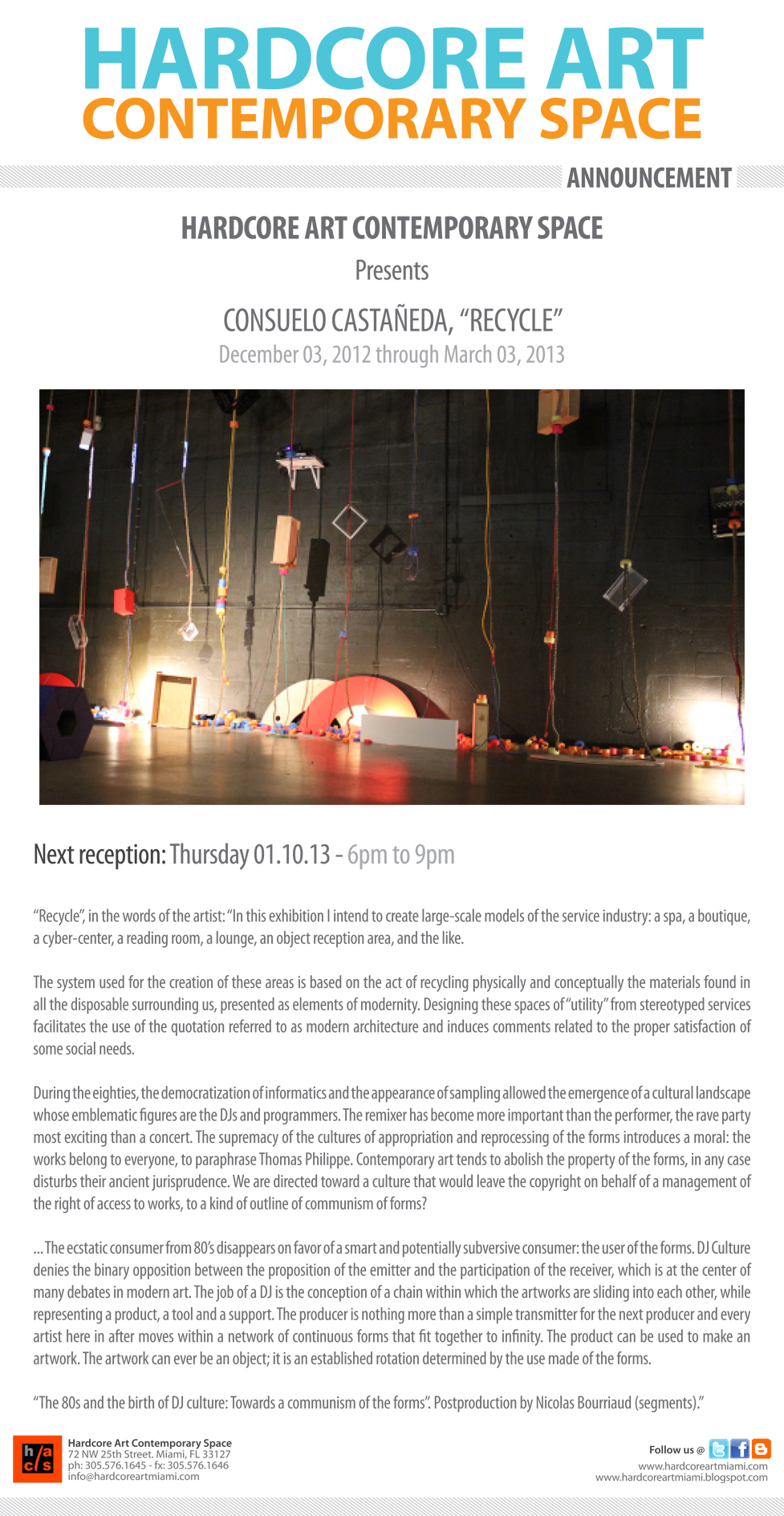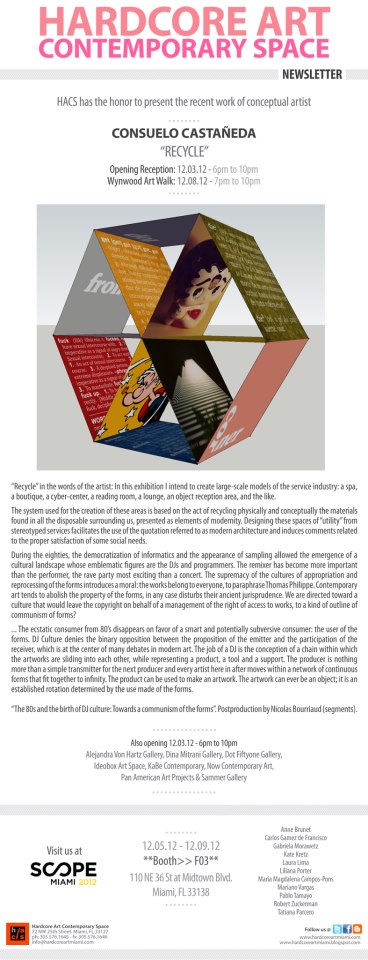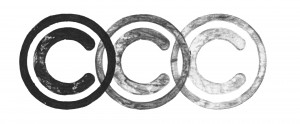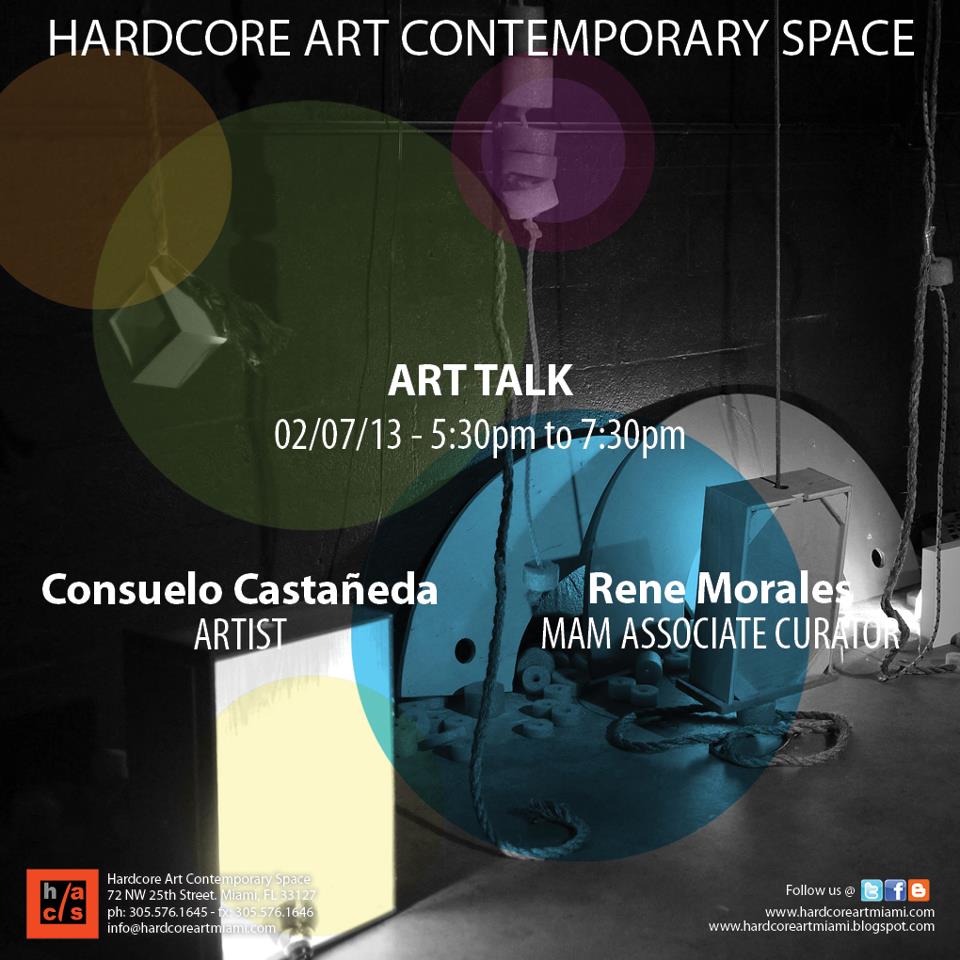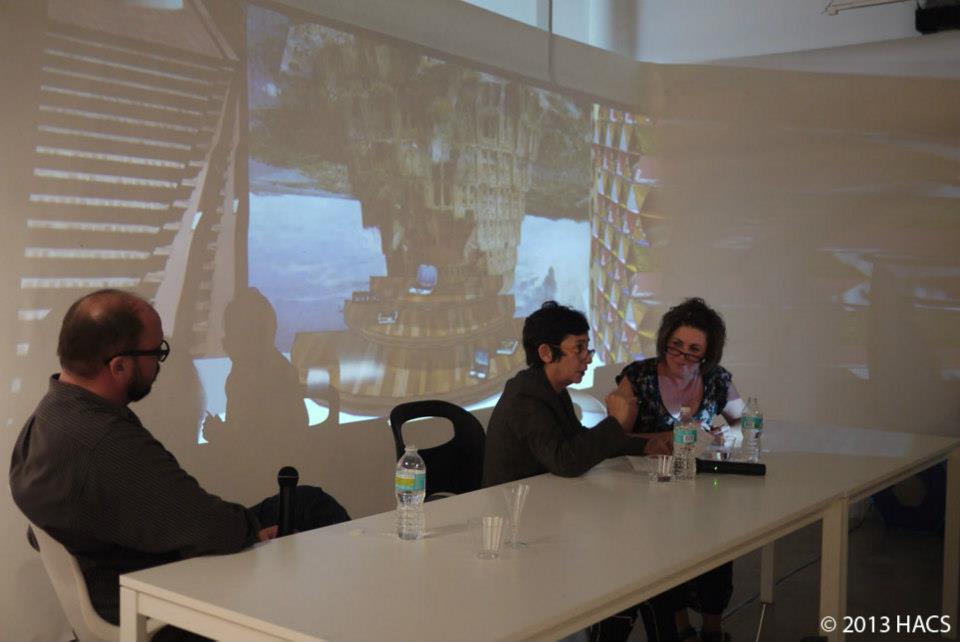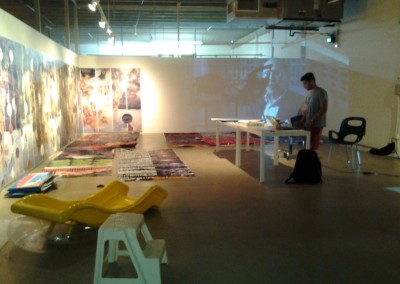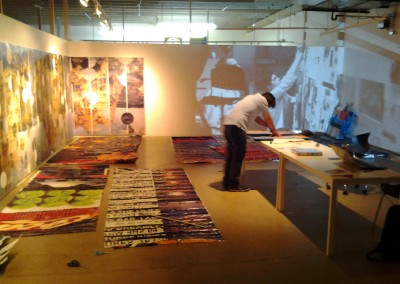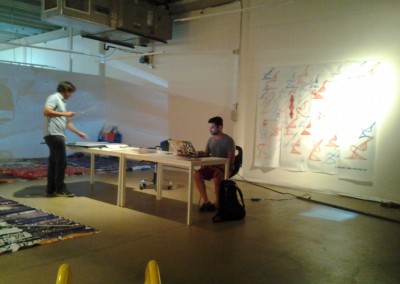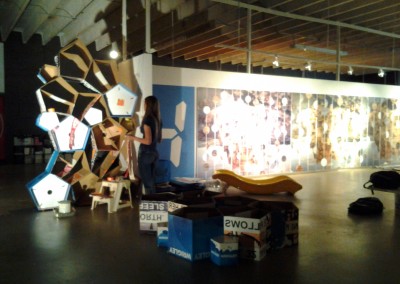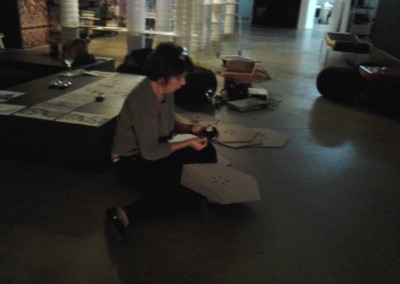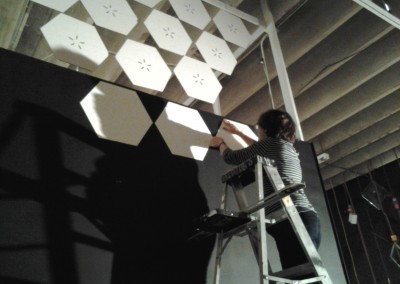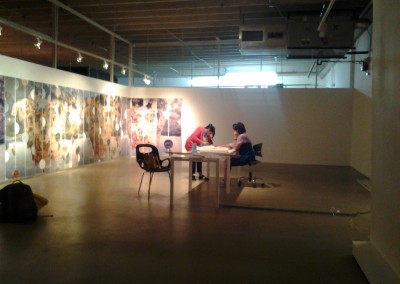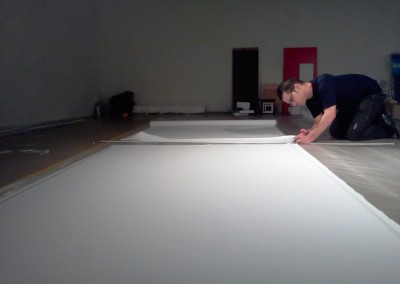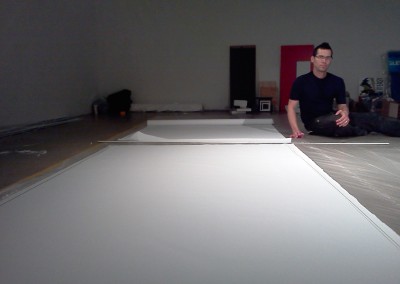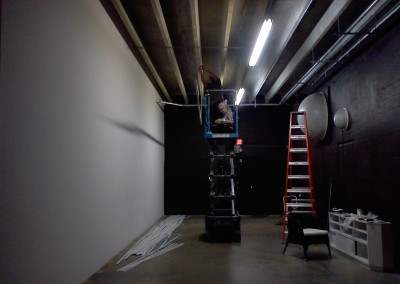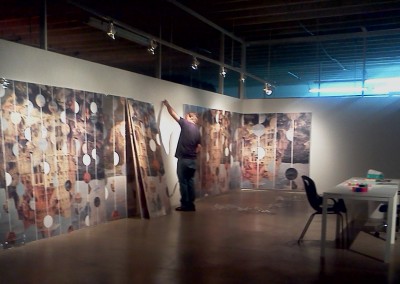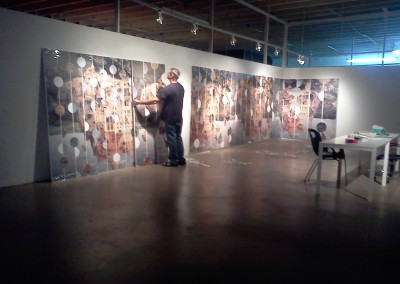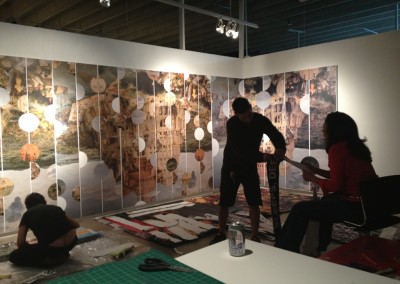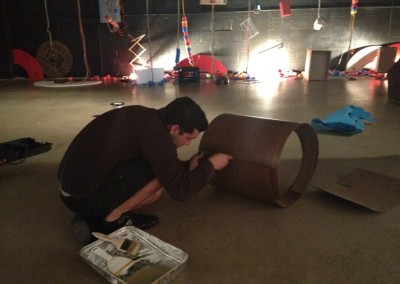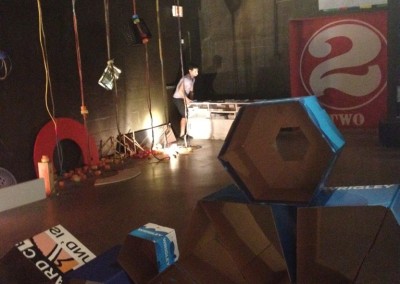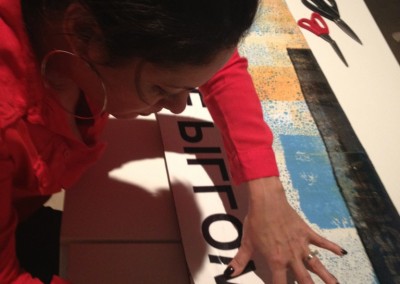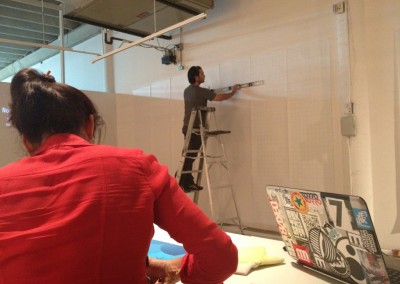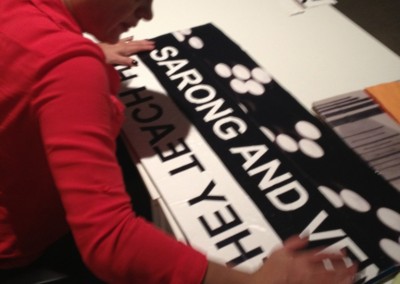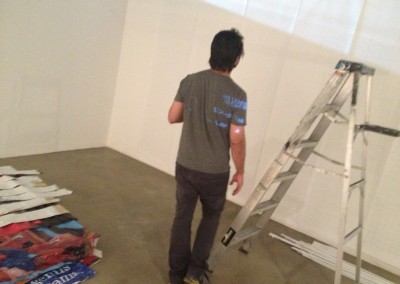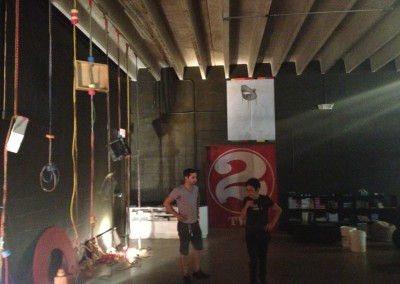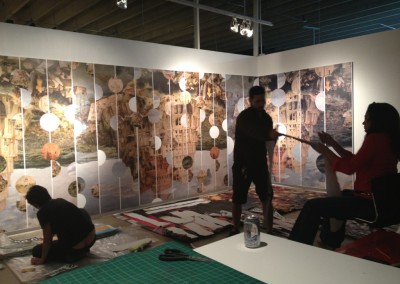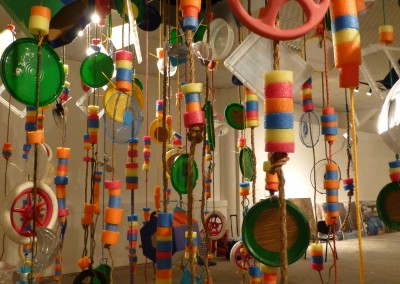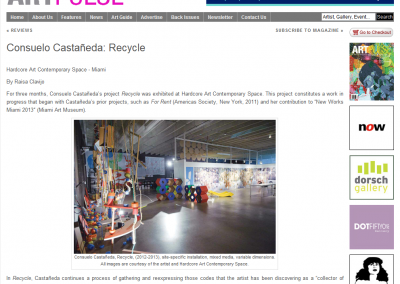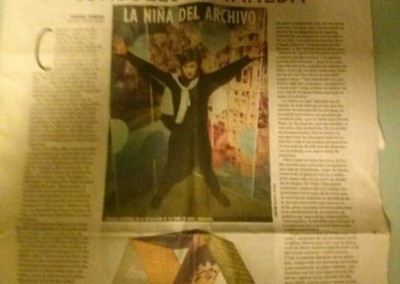During the eighties, the democratization of informatics and the appearance of sampling allowed the emergence of a cultural landscape whose emblematic figures are the DJs and programmers. The remixer has become more important than the performer, the rave party most exciting than a concert. The supremacy of the cultures of appropriation and reprocessing of the forms introduces a moral: the works belong to everyone, to paraphrase Thomas Philippe. Contemporary art tends to abolish the property of the forms, in any case disturbs their ancient jurisprudence. We are directed toward a culture that would leave the copyright on behalf of a management of the right of access to works, to a kind of outline of communism of forms?
… The ecstatic consumer from 80’s disappears on favor of a smart and potentially subversive consumer: the user of the forms. DJ Culture denies the binary opposition between the proposition of the emitter and the participation of the receiver, which is at the center of many debates in modern art. The job of a DJ is the conception of a chain within which the artworks are sliding into each other, while representing a product, a tool and a support. The producer is nothing more than a simple transmitter for the next producer and every artist here in after moves within a network of continuous forms that fit together to infinity. The product can be used to make an artwork. The artwork can ever be an object; it is an established rotation determined by the use made of the forms.
“The 80s and the birth of DJ culture: Towards a communism of the forms”. Postproduction by Nicolas Bourriaud (segments).

